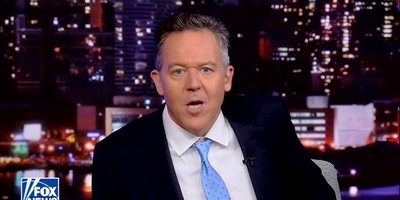If there's just one candidate of change this fall, John McCain will be the Horatio Seymour or James Cox of 2008 -- a presidential also-ran all but forgotten to history.
The only way McCain can hold the White House for the Republicans is if he trumps his opponent on values and national security, and sells the public on a domestic reform agenda that keeps Democrats from sole ownership of the theme of change. Otherwise, Barack Obama will out-inspire him, or Hillary Clinton out-policy him, in a classic out-with-the-old election.
McCain would seem a natural candidate of reform, given how often he has used the word during the past decade. With his hair-trigger sense of honor, McCain's reformism has been driven by what offends him -- large, unregulated campaign contributions and wasteful earmarks. But with the cost of health care increasing and the value of homes declining, the public is going to wonder about McCain's politics of honor, What's in it for them?
The McCain campaign is shrewd enough to realize all of this, which is why he's beginning to piece together a forward-looking domestic agenda. The task isn't easy, given that the candidate isn't animated by domestic issues and leads a party that is only haltingly realizing it needs a policy renovation as it hits bottom at the end of the Bush years.
On his just-completed health-care tour, McCain appropriately triangulated between the status quo and overreaching Democratic proposals. It doesn't take Michael Moore to realize that our health-care system is expensive and inefficient, and leaves too many people out. The root of the problem is the tax break for employer-provided coverage -- dating from World War II -- that leads most people to get their insurance through their employer.
Recommended
Since they don't pay directly for the insurance themselves, people don't know the cost of their plans, and since their insurance pays for their medical procedures, they don't know the cost of them either. This creates the predicate for runaway medical inflation. Meanwhile, if you lose your job, you lose your insurance, sometimes -- tragically -- just when you need it most.
The answer isn't government-sponsored universal coverage. McCain correctly says it would "replace the inefficiency, irrationality and uncontrolled costs of the current system with the inefficiency, irrationality and uncontrolled costs of a government monopoly." He offers a different sort of break from the employer-dominated system.
McCain wants to give people a tax credit -- $2,500 for individuals and $5,000 for families -- to buy their own insurance. They can keep their insurance through their employer if they like, but the credit would make it easier for individuals to buy -- and keep -- insurance on their own. "The key to real reform," McCain said, "is to restore control over our health-care system to the patients themselves."
If individuals are shopping for health care, insurance companies would have an incentive to provide better plans at lower cost. If they purchase their own plans, their insurance wouldn't be dependent on their jobs. This change therefore mitigates two of the besetting problems of the current system -- affordability and access. One economist estimates that some 20 million more people would get insurance.
To be sure, the individual health-insurance market -- barely existent now -- has glaring failures. As Elizabeth Edwards has pointed out, both she and McCain, as cancer survivors, would have trouble buying new insurance because of their "pre-existing conditions." McCain promises to find ways to get such "uninsurables" coverage, but it will surely require more government involvement than free-market purists will like.
McCain's proposal is just the start of what has to be a broader conservative reformation. The sole Republican response to the public's economic anxieties can't be trying to talk the public out of them. If it is, the GOP will have a long time out of power to think more creatively. Better to do it now. John McCain, too, must be a candidate of change.

























Join the conversation as a VIP Member